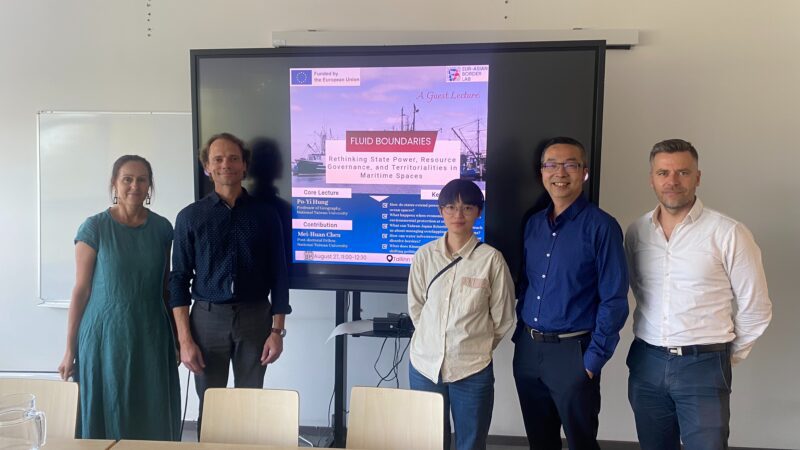
On 27 August 2025, the Eur-Asian Border Lab, in collaboration with the Taiwan–Estonia Cooperation Programme, hosted a guest lecture that examined the complex dynamics of maritime governance, territorial disputes, and resource management. The event featured Professor Po-Yi Hung and Post-doctoral Fellow Mei-Huan Chen from National Taiwan University, drawing an engaged audience from academia, policy, and research communities to Tallinn University.
Professor Po-Yi Hung’s lecture drew on Taiwan’s experience with offshore wind farm development, fisheries management, and the Taiwan-Japan fisheries agreement to explore how states project authority into fluid maritime environments. His analysis revealed the fundamental tensions that arise when economic development collides with ecological protection, and demonstrated how international legal frameworks like UNCLOS simultaneously enable state expansion while creating new forms of resource enclosure and “ocean grabbing.”
The discussion took a particularly interesting turn when examining the mobility of fisheries and fishermen’s practices. Professor Hung observed that “the fishermen follow the fish” – a reality that exposes the limitations of fixed territorial boundaries in governing dynamic marine ecosystems. He proposed reconceptualising borders as “lines of connection” rather than division, arguing that “we need to make the border as a connection… follow the water, follow the fish, to connect together.” This perspective sheds light on how everyday practices can generate pressures that force governments to negotiate more flexible arrangements, creating what he termed “grey zones” where cooperative management transcends formal territorial claims.
Mei-Huan Chen’s contribution examined how water infrastructure functions as both a bordering and debordering mechanism through the case of Taiwan’s Kinmen Islands. Her research traced the transformation of water systems from Cold War instruments of territorial reinforcement to contemporary cross-strait pipelines that now symbolise connection and interdependence. This analysis revealed how the same infrastructure can carry different political meanings depending on historical context, showing how material systems and political projects intersect in complex ways.
It was also a delightful surprise to have Professor Jussi P. Laine, our esteemed lab member from the University of Eastern Finland, join the lecture. As one could expect, he brought along his own thought-provoking insights on border dynamics, enriching the discussion and adding valuable depth to the reflections on maritime governance and the conceptualisation of fluid boundaries.
During the Q&A, Professor Hung introduced his developing concept of “elastic sovereignty” – a framework that takes Taiwan’s ambiguous geopolitical status as a starting point for rethinking sovereignty beyond rigid nation-state categories. He characterised Taiwan as existing “neither nation nor state” and suggested this liminal position offers opportunities to reconceptualise what defines sovereign space. Describing sovereignty as a “dynamic process,” his approach emphasises the experimental and contingent nature of territorial authority, particularly relevant for understanding maritime governance where fluid boundaries resist fixed categorisation.
The lecture demonstrated how Taiwan’s maritime experience offers broader insights into contemporary border dynamics, revealing the gaps between formal territorial claims and the practical realities of governing mobile populations, resources, and ecosystems. The emphasis on viewing borders as processual and adaptive provides valuable analytical tools for understanding how governance operates across the fluid boundaries of maritime spaces.
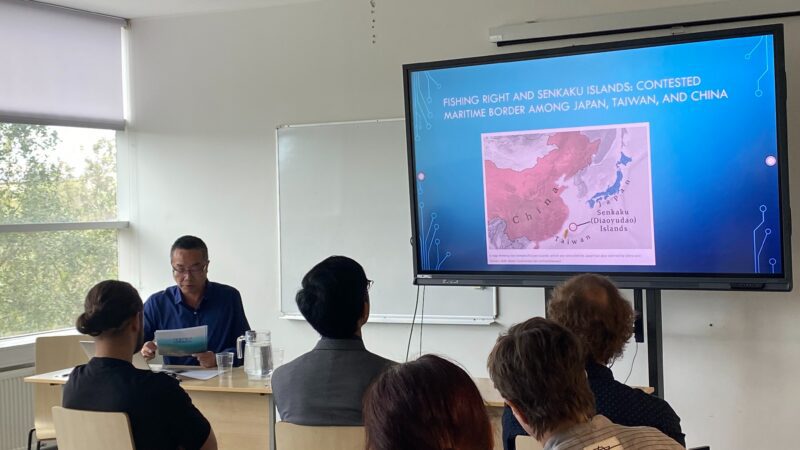 |
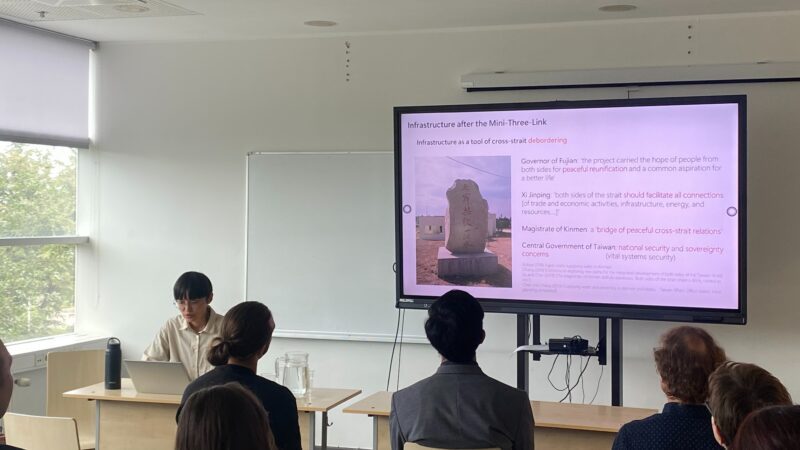 |
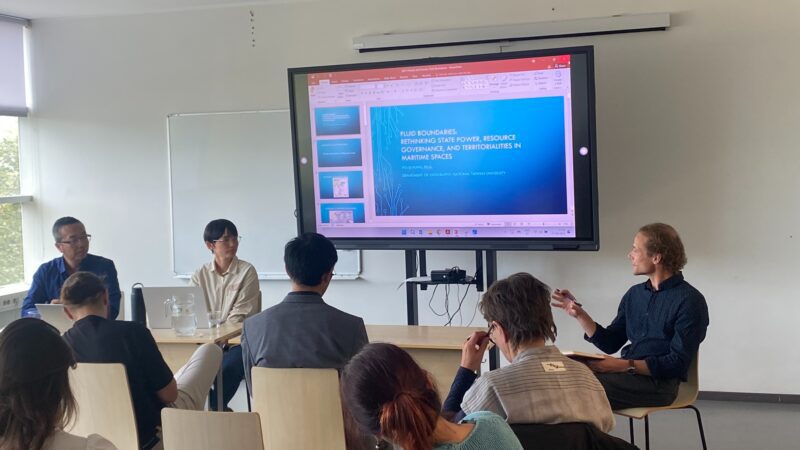 |
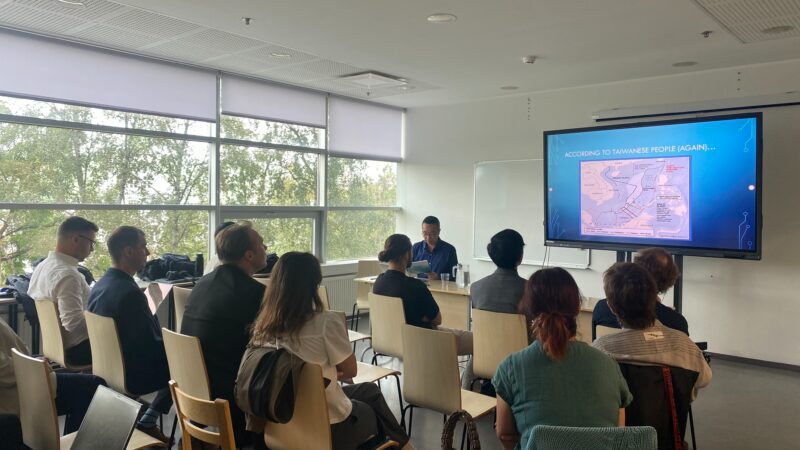 |
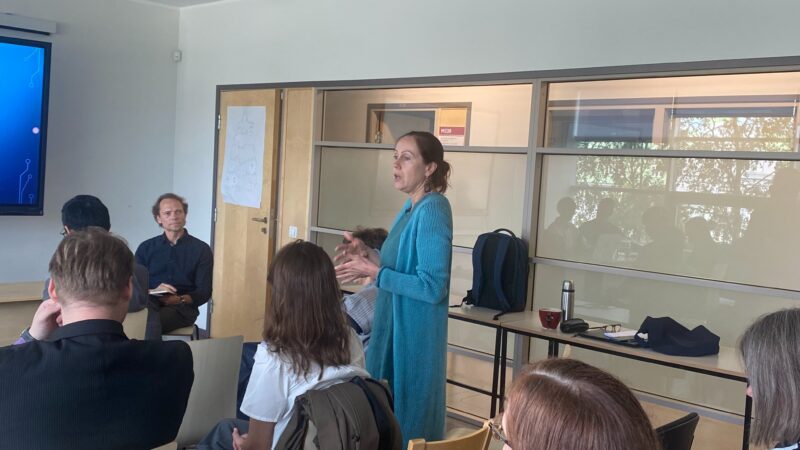 |
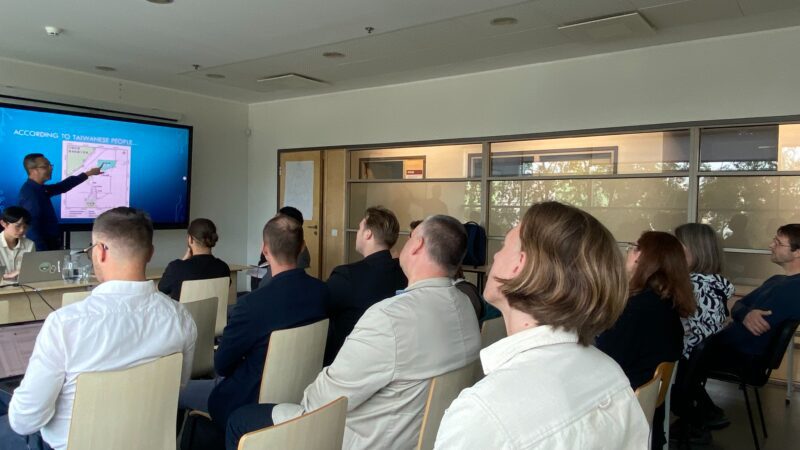 |
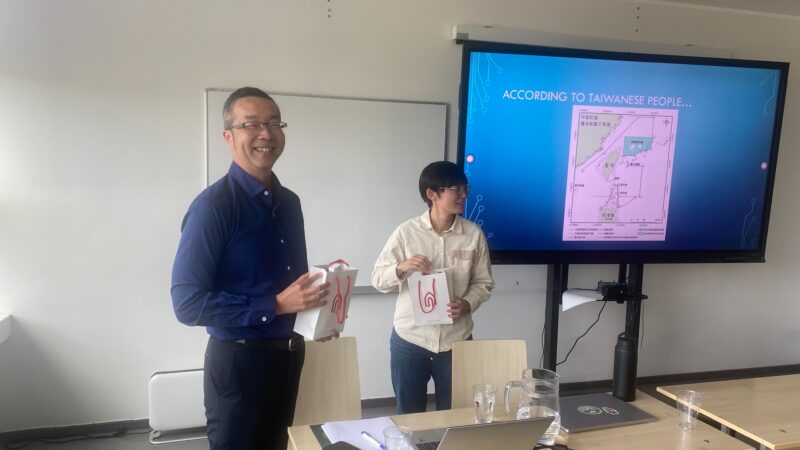 |
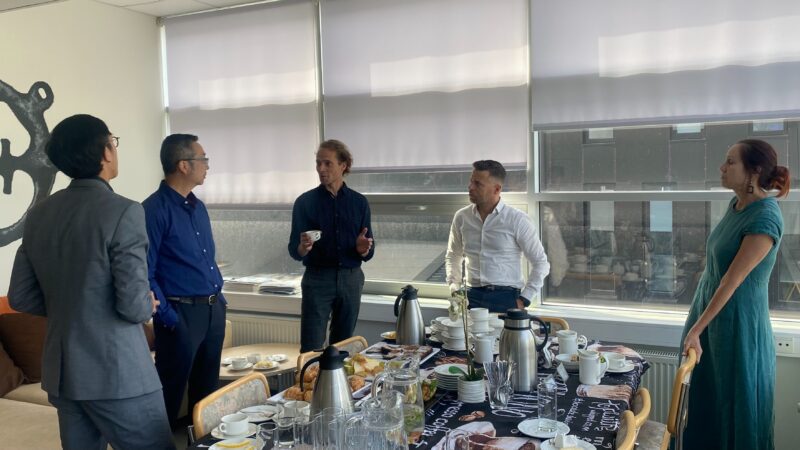 |